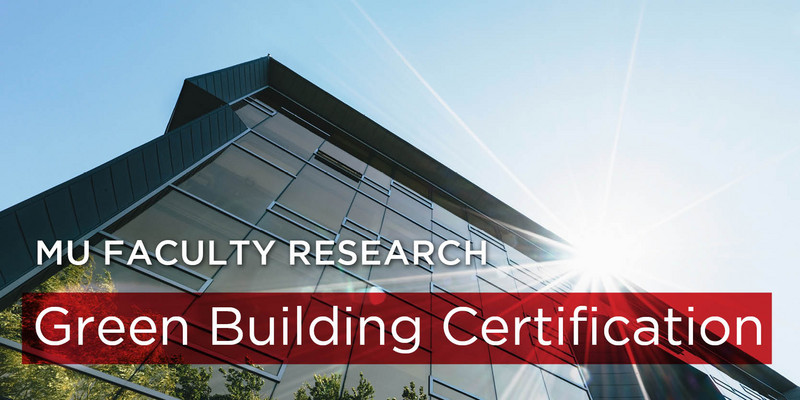Sustainable Development of Urban Areas
February 24, 2021
Faculty Research
MUs full professor, Gunther Maier, is a member of the Department of Sustainability, Governance, and Methods and also a founding member of the Austrian Society of Sustainable Real Estate (ger.: ÖGNI). The ÖGNI is a leading organisation in certifying "green buildings" - a process and award that has gained global prominence in the wake of calls for ensuring the sustainable development of expanding urban areas. The article "The impact of building location on green certification price premiums: Evidence from three European countries" was published in the Journal of Cleaner Production in 2020 and is focusing on transactions of office buildings in Finland, France and Germany. For this publication, Mr. Maier was working together with scientists and co-authors from the Netherlands and Romania.
Why focus on office buildings?
Decision makers in the European Union (EU) are increasingly focusing on reducing energy consumption and greenhouse gas emissions by up to 80 percent of the current levels by 2050. To reach this goal, it is vital to understand what are the main sources of energy consumption and the major worldwide trends in the energy consumption process. Buildings, businesses and residential homes, are among the main sources of energy consumption and CO2 emissions. Green certification therefore emerged in response to sustainability concerns throughout the building sector. Nonetheless, the significant costs required by green investments have elicited scholars’ attention, in an attempt to determine if the benefits of green certification outweigh its costs. This study uses a proprietary data-set of office building transactions from Finland, France, and Germany - in order to analyze the price premium of green certification over the 2010–2015 period. Considering the increasing demand for certification in the European Union (EU) after 2010, it is expected that green office buildings would sell at higher prices relative to non-green buildings. Empirical tests suggest that office buildings with green certification have a 19 percent higher price relative to non-certified buildings. The EU office building market is chosen due to its distinct characteristics. Green building developments in Europe are relatively recent; the pace of green building certification across Europe has intensified, as can be observed from the new projects that have been developed in the last five years. An increasing share of new buildings is green and the trend is likely to be maintained in the next years, since about 35 percent of the buildings in the EU are over 50 years old.
Green buildings in prime locations
The article is driven by the fact that research finds green buildings to be located predominantly and dis-proportionally in first-class urban locations. Nonetheless, the buildings that are located in the central business districts already bring a price premium for their top location. Given this, it is not clear if the additional premium brought by the green certification is indeed material. It is expected that a green premium would be larger when buildings are located farther from the city center - in this case, the green certification would then more likely work as a differentiation characteristic.
The Commission and the European Parliament are interested in increasing the number of green office buildings in the countries of the EU and this paper offers novel evidence on the financial incentives associated with green certification. Moreover, the analysis of the price premiums for office buildings’ green certification is performed by using proprietary data from an international setting. It is important to realize that by understanding the financial benefits brought by the green certification, concurrent with the choice of building location, developers can thus obtain higher returns on investment.
Gunther Maier used to hold lectures at WU Vienna, is teaching and mentoring students at Modul University since 2019 and will gladly respond to any question about this article. Benefit from his knowledge and meet him in courses like:
- Sustainability in Real Estate
- Real Estate Management & Regional Development
- Scientific Writing II (PhD level)
Modul University is driven to minimize its ecological footprint and the MU Sustainability Committee works on measures to take a step forward and set a good example.





